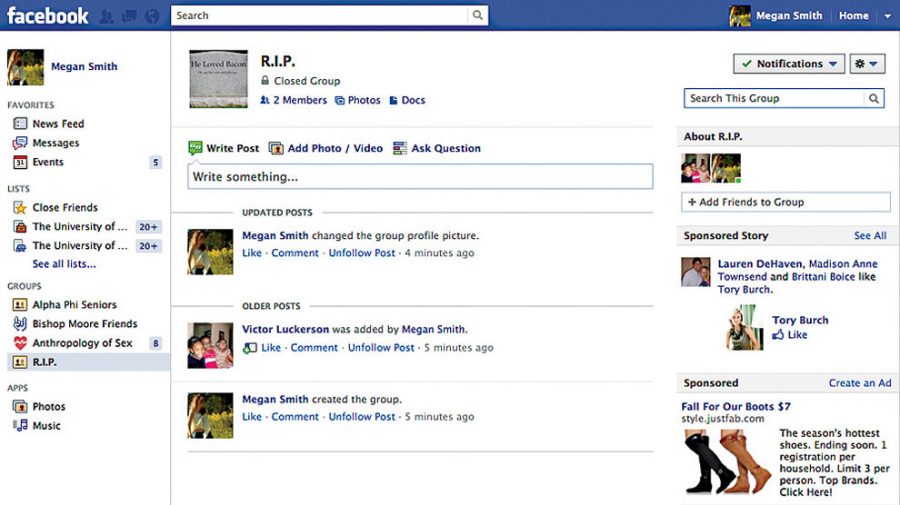Grieving in the 21 century is a bit different than grieving used to be. Social media sites like Facebook were designed for updating the activities of living individuals. However, when a user dies, their account with the social media site still exists. Often the dead user’s profile is used as a grieving mechanism for loved ones.
It is common now for people to do things like post a comment on the wall of a loved one after their death describing how important that person was to them or to later write birthday wishes.
Connor Flannigan, a sophomore majoring in pre-med, said he believes that social media websites like Facebook are a good way to express mourning.
“I have a friend who passed away last year,” Flannigan said. “I wasn’t able to make it to the funeral so [Facebook] was a good way to cope because I never got the closure of a funeral.”
Jim Hamilton, associate professor of psychology at the University, also supports the use of social media in the mourning process.
“Using Facebook is a good way to communicate to others that someone has passed away,” Hamilton said. “It’s always gratifying [to family members] to learn that a loved one touched the lives of others.”
What concerns psychologists, however, is that the decision to use social media for mourning may sometimes cross a boundary that leads to unhealthy behavior.
“The general idea is that if you still have symptoms [of grieving] after three to six months, then you are having an unhealthy grieving process,” Hamilton said.
Lee Keyes, director of the Counseling Center, further explained the nature of an unhealthy grieving process.
“If the person is engaging in dialogue on Facebook or Twitter as though the person was still alive, then that would be a sign of a problem,” Keyes said.
Unhealthy grieving, however, is not a new idea to psychologists. Although social media has seemed to introduce a number of questionable grieving practices, it is certainly not the first time that harmful behavior has been exhibited by mourners. Examples of unhealthy grieving exist in numerous other forms.
“There are some loved ones who make daily visits to the grave site and leave gifts and toys in remembrance,” Keyes said.
Nevertheless, Keyes said it is sometimes difficult to pinpoint a case of unhealthy grieving.
“Grieving is a very individually unique and complex process,” Keyes said. “You would have to know a lot more about that person and their loss to make a judgment.”









